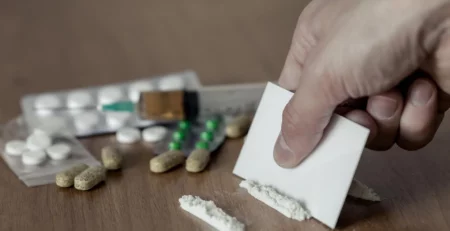Does Insurance Pay for IOP?
Getting Proven Outpatient Options at Icarus in Nevada
Navigating the world of insurance and understanding what’s covered can be a challenge, particularly when seeking help for mental health or substance abuse treatment, such as Intensive Outpatient Programs (IOP). It’s disheartening to prepare yourself mentally for treatment only to reach an obstacle because insurance doesn’t cover what you know is a necessary service.
Mental health and addiction issues require timely treatment. Just like other medical challenges, they don’t disappear with time; untreated symptoms can compound and escalate into more serious issues. Accessible care is vital in these scenarios.
Trying to work out what an insurance policy covers can be frustrating especially while simultaneously grappling with a personal health crisis – it adds distress to an already burdensome situation.
However, don’t let the complexities of insurance coverage deter you from seeking the treatment you need and deserve. So does insurance pay for IOP? Very often, yes, it does. Let us help you find more answers now, and get proven options for treatment.
Keep reading to learn more about IOP and insurance coverage and how Icarus Behavioral Health can help you get the information and outpatient services you need.
What is an IOP Program?

An Intensive Outpatient Program or IOP is a structured treatment program usually used to treat mental health disorders and substance abuse disorders. The goal of these substance abuse services is to aid in managing symptoms and recovery while also letting individuals continue their daily lives.
Unlike an inpatient treatment center that requires a full-time commitment, an IOP treatment center allows patients the flexibility to maintain commitments like school, family life, and work while still receiving intense treatment.
IOP treatment is designed to deliver extensive psycho-educational and psycho-social support for people dealing with mental health and addiction problems under the guidance of professional counselors and medical staff members. The specific therapeutic offerings within IOP can vary depending on individual needs.
Fast and Free Insurance Verification – Reach Out Now!
How Often Does an IOP Meet?
In these forms of treatment programs, participants generally attend structured group and individual therapy sessions multiple days per week, each lasting a few hours. Sessions may include cognitive-behavioral therapies, family counseling sessions, or education on issues like drug abuse and relapse prevention.
While it’s less restrictive than inpatient treatment or partial hospitalization programs, IOP provides the structure and support needed to promote recovery. Its purpose is to equip individuals with skills and techniques for coping with life circumstances, dealing with cravings or triggers, and managing medication appropriately under supervision.
An IOP can also help with improving psychological well-being as clients regain control of their lives following confrontations with addiction or mental health disorders.
How To Verify Health Insurance Coverage for Our Intensive Outpatient Program

Finding out whether your health insurance policy covers intensive outpatient drug rehab is an important step.
Reach Out to Icarus Behavioral Health in Nevada
As part of our commitment to aiding recovery journeys, we’ll gladly assist with determining if your insurance provider is accepted at our facilities.
We can also provide additional advice on how necessary treatments can become more affordable so that they’re within reach when needed most.
Don’t let questions about insurance coverage deter you from seeking help – there are available resources that will allow you to get the help you need.
Check For Pre-Authorization Requirements
Pre-authorization, also known as pre-certification or prior authorization, is a requirement from some insurance companies to obtain approval before receiving certain medical services or procedures.
In the context of an Intensive Outpatient Program, this means that your provider will want to confirm that it’s medically necessary for you to engage in such treatment before they agree on covering it.
They do this by evaluating the ongoing treatment plan and verifying whether there are no other less-intensive treatments available for you.
It is worth mentioning that if pre-authorization isn’t obtained in these instances where required. insurers may not cover any associated costs with IOP treatment providers which could potentially leave you financially responsible.
Call us to determine if you need a pre-authorization request and we will help you take the appropriate steps.
The Role of Medical Necessity in Mental Health and Substance Abuse Coverage
Insurers often base their decisions on whether to cover a treatment largely on the principle of ‘medical necessity.’ They evaluate if IOP is truly essential for the patient’s recovery by taking into consideration factors such as severity and duration of addiction, the patient’s individual health condition, and how effective previous treatments have been. Doctors’ recommendations play a big role in this evaluation.
Insurers might sometimes interpret the concept of ‘medical necessity’ restrictively as a way to limit their financial obligations. They may make attempts to classify certain treatments, like an inpatient program and IOP, as beyond medical necessity or argue for less intensive (and comparatively cheaper) forms of treatment.
For instance, they can suggest that outpatient therapy rather than an intensive outpatient treatment program is adequate enough for your addiction and mental health treatment even when your care provider suggests otherwise.
Such interpretations can leave individuals in dire need without sufficient coverage for essential treatment programs, therefore impacting their addiction recovery journey negatively. This inherent conflict with insurers amplifies the importance of patient advocacy and awareness about one’s rights under insurance laws and regulations.
Factors Influencing The Cost of Substance Abuse Outpatient Treatment

When considering the cost of substance abuse outpatient treatment, insurance policy details play a substantial role. Here are some key factors:
Health Insurance Plan Types and Levels of Coverage
Different insurance plan types provide different levels of coverage for IOP services and other types of outpatient treatment. Health Maintenance Organizations (HMOs) might only cover services provided by facilities in their network, meaning they’ve agreed upon predetermined rates for treatments – this can make costs lower but limits where you can receive treatment.
Preferred Provider Organizations (PPOs), on the other hand, give patients greater flexibility about which providers they use, as referrals aren’t required, although using out-of-network services could result in higher out-of-pocket costs.
It’s important to closely review your insurance plan information so you can make informed decisions about receiving care that both meets your needs and aligns with what’s financially feasible for you. Ultimately, most health insurance policies will cover at least part of a treatment facility, but the specifics will vary depending on your specific coverage.
Confidential Assessment and Insurance Verification – Call Now!
Duration and Frequency of Mental Health and Addiction Treatment
The length and frequency of the IOPs can indeed affect your insurance coverage. Typically, an intensive outpatient treatment program requires multiple sessions each week over a period of weeks or months. Insurance companies often have specific rules about how many sessions they will cover within a specified time limit.
For instance, one policy may cover three weekly IOP sessions for 3 months while another might only offer up to 10 total sessions across the same period.
Failing to attend scheduled appointments could potentially impact you negatively in terms of insurance claims too. If they see that you aren’t going to all of your meetings, they sometimes pull coverage.
Typically, the longer you need to be in treatment and the more often you attend, the more it will cost you and/or the insurance company.
How Much Do Intensive Outpatient Programs Cost Without Insurance
Without insurance, the cost of Intensive Outpatient Programs can vary significantly based on factors like location, type of program, and specific services provided by the facility.
At its lowest end, an IOP session may cost around $150 per day, but in some cases, costs could escalate to between $400 and $500 per day. For more “upscale” facilities that offer a high level of amenities or special additional treatments, like dual diagnosis treatment, holistic programs, or individualized therapies, prices could be even higher than this range.
How to Pay For Mental Health Services and Addiction Treatment

Don’t lose hope if you don’t have insurance or it doesn’t fully cover your Intensive Outpatient Program. There are alternatives to fund your recovery.
Sliding-Scale Fees
Some addiction treatment facilities offer sliding-scale fees based on individual income and ability to pay. This structure could potentially make IOP a more realistic financial option for those who might otherwise struggle with full costs.
Payment Plans
Many providers understand the challenge of facing large lump-sum payments for substance abuse treatments, so they may allow breaking down the total cost into manageable monthly installments.
Scholarships and Grants
Several organizations offer grants or scholarships specifically designed to aid in the accessibility of addiction treatment for those who can’t afford it. Award amounts vary greatly but any assistance goes a long way towards reducing costs.
Determine How Much You Can Pay Per Week
Budgeting is key when considering your outpatient addiction treatment options. Assess your income, savings, and expenses to ascertain what you’re genuinely capable of paying each week for an IOP.
Once you determine a realistic amount that won’t put undue fiscal stress on you, bring this information to the discussion you have with the treatment center. Remember, they are there to support recovery journeys – part of that means empathizing with financial constraints and limitations surrounding patients’ treatments and trying to come up with solutions that work for you and the facility.
What To Do If You Can’t Immediately Afford the Cost of an IOP

In a circumstance where financial limitations prevent you from immediately accessing a residential treatment facility or an IOP treatment program, there are alternatives that can serve as stop-gap measures until you’re able to have more permanent arrangements:
Attend 12-step Programs and Other Support Groups
12-step programs, such as Alcoholics Anonymous (AA) and Narcotics Anonymous meetings (NA), are community-based, peer-led support group meetings that foster mutual assistance among people dealing with addiction problems. These programs provide fellowship and offer a structured approach to achieving sobriety. They are also free.
Other similar options include Crystal Meth Anonymous in Las Vegas, with meetings also held at locations in other parts of the state.
In these guided sessions – which operate on the foundational principle of anonymity – participants admit their lack of control over substances and acknowledge a higher power’s role in the addiction recovery journey while taking inventory of past wrongdoings and making amends when possible.
Working through the program’s twelve steps helps individuals not only transcend their addictive behaviors but also work towards personal growth by seeking healing from emotional pain and trauma.
Create Safety Plans
A safety plan serves as a personalized, practical tool that can help those dealing with mental health or substance abuse issues to navigate difficult situations and foster sobriety. Essentially, it’s a set of steps designed for immediate self-administered aid during times of distress or possible relapse.
The goal is to guide you through the process of recognizing relapse before it happens and using coping strategies when interactions with detrimental triggers cannot be avoided.
Seek Therapy
Therapists often work on sliding price scales based on your income, making their services more affordable compared to comprehensive addiction programs.
Therapy can play a significant role in dealing with addiction and mental health issues. It involves speaking to a professional therapist about your challenges and feelings in a safe and confidential environment.
Participating in therapy sessions gives you the chance to look more deeply at your concerns, understand yourself better, and change maladaptive behavior patterns while learning healthier coping mechanisms.
What Therapy Practices Are Used at Icarus in Nevada?

Our therapists use different therapeutic techniques depending on what suits each individual client best – cognitive-behavioral therapy (CBT), dialectical behavior therapy (DBT), and eye movement desensitization and reprocessing (EMDR) are just a few of the many options.
Whether it’s through identifying triggers that lead you towards unhealthy habits, dealing with trauma that led to your drug or alcohol abuse in the first place, or equipping you with relevant strategies for distress management, therapy serves as a valuable tool in treating addiction and mental health issues.
If you can’t afford outpatient treatment services, don’t assume all hope is lost – sometimes working closely with an understanding therapist is enough to guide you to a healthier life.
Up To 100% Rehab Coverage By Insurance – Call Now!
Contact Icarus for Help With IOP Treatment Options Now
Understanding the details of your insurance policy when it comes to coverage for intensive outpatient rehab treatment holds significant importance. By being proactive in researching and understanding these factors, you are taking vital steps towards effective treatment for your active addiction or mental health concerns.
Navigating this can feel overwhelming, but remember, help is available; here at Icarus Behavioral Health in Nevada, we are ready to assist you on all matters related to your insurance policy concerning IOP.
All calls to our facility are completely confidential, so please reach out now for options!











